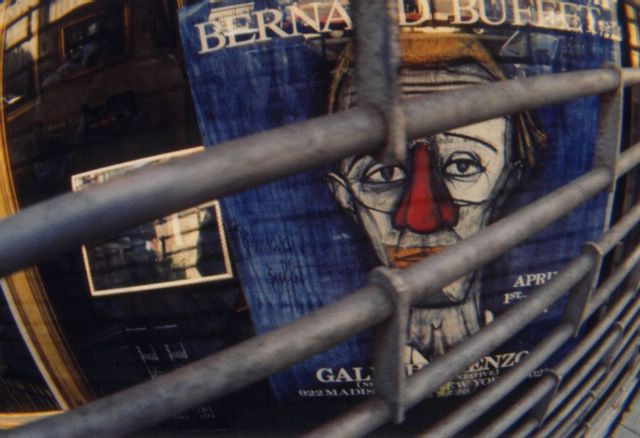Interesting op-ed piece in today's NYT by presidential biographer Edmund Morris, wherein he argues that art and the creative process are becoming sterile and impersonal because artists and art are becoming increasingly "hands-off."
He waxes poetic about the violent physicality of Beethoven and Bernard Dufour's creative process and the way they literally attack the paper or canvas, as compared to "video recording, performance art and installations farmed out to contractors...."
I'm not entirely sure how to feel about this as a photographer who can't draw a straight line to save his life. And not just any kind of photographer, but a digital photographer, so my idea of photo "processing" no longer involves chemicals or film or timers or darkrooms. My only interaction with the physical (apart from the actual picture-taking) is when I print the photos out, which is still a far cry from the film-based print-making experience.
To me, this is simply a time and expense saver. There may be some value added by using film, as some of my old-school photog friends insist, but they have always couched their arguments in terms of the quality of the media itself, never in terms of the process of spending hours in the darkroom, personally developing their own negatives and prints and coming out smelling like chemicals.
On the other hand, my girlfriend is a genuine drawing-things-on-paper kind of artist who would never dream of creating her art electronically. Scanning the finished product for display on the web, sure, but to my knowledge she's never used an electronic app for anything artistic beyong doodling or graphic design. Is it quick or convenient? No. But it's the only way she can achieve the quality she requires. Digital is simply not an option for her, and I believe it is likewise not an option for a large number of artists who create images from scratch.
As I ponder the validity of Morris's two basic premises, that A) "Physical" art is dying out, and B) That this will suck all the life out of our cultural discourse, I find that my conclusion is that my disbelief in Premise A almost validates Premise B. I can't imagine the demand for physical art ever drying up, because people in the market for art want something tangible, something created by the artist's own hand. There's a uniqueness and a prestige to that which electronic, infinitely reproducible and essentially virtual works of art can never equal. And this is why no-one will ever pay thousands of dollars for any of my photos.
I admit, I don't really have a profound point or insight to make, but I'm intrigued by the questions that it stirs up, and the whiff of traditionalist snobbery evinced by Mr. Morris.
Subscribe to:
Post Comments (Atom)

3 comments:
As someone who has done film photography in the totally time consuming manual exposure, hand held light meter modality, Luddite snobbery is lost on me. Let's step away from the keyboard and create our own inks before we take pen to paper. Or better let's take charcoal from the wall and apply it to the cave walls before the age of artificial permanence at Altamira. Art lies most in the conception in the mind, the tool in hand is second to that first creation. So long as there is light and spirit in the mind, true art will find its intense physical expression.
Yeah, I've done photography where I've had to do my own developing and printing. I don't think that added anything at all to it artistically. The eye is what matters.
So, if it looks good and moves the heart, it's Art.
Sometimes that's physical, sometimes it's not.
I can get behind that.
I agree with H. Art is just fine. It'll never die "so long as there is light and spirit in the mind". Of course the Bush administration is trying to do something about that...
Post a Comment